Website search results
Results from our website.
Display as:
- Displaying results as a list
- Displaying results as a grid
Results
-
Women and the First World War
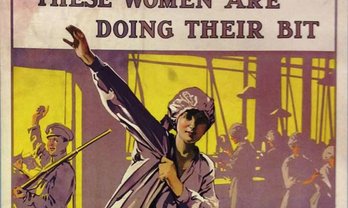
Explore records that demonstrate the changing role of women in Britain during the First World War.
- Format:
- In pictures
-
The dissolution of the monasteries
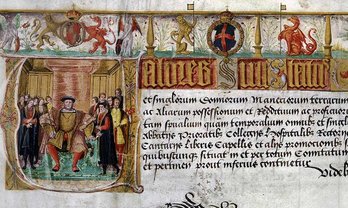
With records relating to Henry VIII’s 1534 break from Rome, we can trace the Crown’s dissolution of religious houses and appropriation their income and assets.
- Format:
- In pictures
-
Architecture
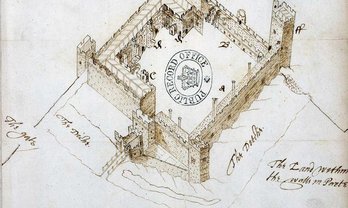
Our architectural records cover many public buildings, from the Houses of Parliament and Whitehall offices to castles and cathedrals.
- Format:
- In pictures
-
The National Farm Survey, 1941–1943
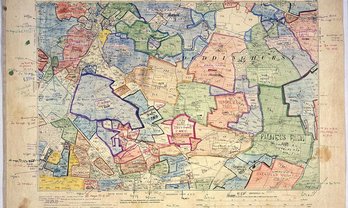
The National Farm Survey was created during the Second World War to increase food production and to plan for post-war agriculture.
- Format:
- In pictures
-
Empire Marketing Board posters
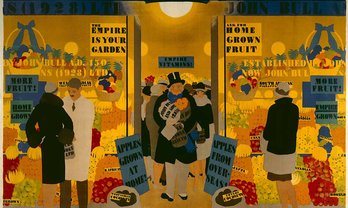
The Empire Marketing Board was established in 1926 to stimulate trade in the British Empire. Its striking posters presented idyllic views of the Empire.
- Format:
- In pictures
-
Road safety campaigns
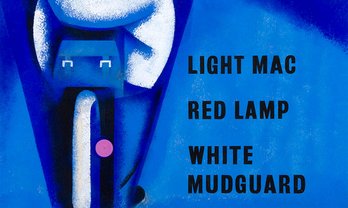
Our records include leaflets and posters used to promote different aspects of road safety, often in a surprisingly artistic way.
- Format:
- In pictures
-
Policing and prosecution
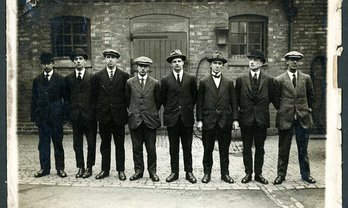
Our records of criminal activity range from court records for high profile offences to files on crimes committed by small-time crooks.
- Format:
- In pictures
-
The Peterloo Massacre
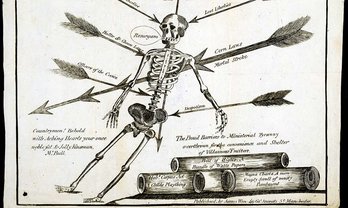
In 1819, thousands of peaceful pro-democracy demonstrators in Manchester were charged by armed cavalry. The deadly event became known as the Peterloo Massacre.
- Format:
- In pictures
-
Victorian and Edwardian travel posters
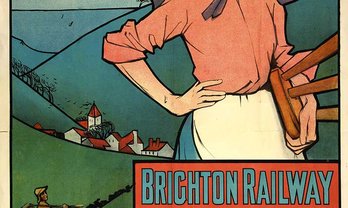
Our collections include a range of fascinating promotional material from railway companies in the Victorian and Edwardian eras.
- Format:
- In pictures
-
Domesday
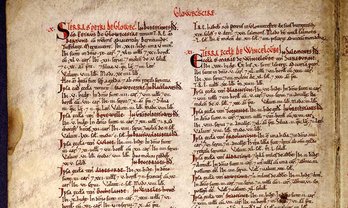
The earliest and most iconic public record, Domesday Book documents the transformational impact of the Norman victory at Hastings in 1066.
- Format:
- In pictures
-
Victorian bright ideas
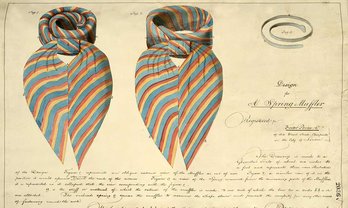
The Victorians’ innovative and entrepreneurial spirit can be found in records of designs they registered to protect the copyright of their inventions.
- Format:
- In pictures
-
Copyright registration form for Bram Stoker’s Dracula
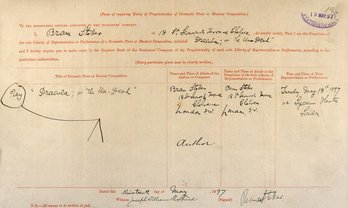
The Irish author completed this form to register ownership of a play titled ‘Dracula; or the Un-Dead’, and thus his seminal novel. It would prove important.
- Format:
- Record revealed
-
Christine Granville’s application to become a British citizen
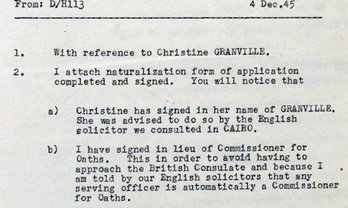
Christine Granville, Special Operations Executive agent extraordinaire, was Churchill’s favourite spy. How did this document possibly save her life?
- Format:
- Record revealed
-
Printed circular produced by the National League of the Blind
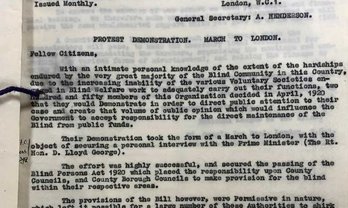
In 1920, hundreds of members of the National League of the Blind (NLB) marched 200 miles to campaign for support. This printed circular explains what happened.
- Format:
- Record revealed
-
List of suffragettes arrested from 1906–1914
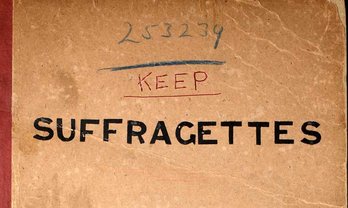
More than a thousand people who supported women’s right to vote were arrested for their activism. This document records them – and includes some famous names.
- Format:
- Record revealed